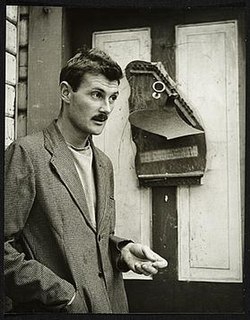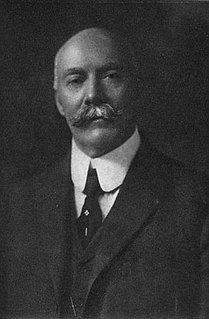A Quote by Anais Nin
Since desire always goes towards that which is our direct opposite, it forces us to love that which will make us suffer.
Related Quotes
Glad and merry and sweet is the blessed and lovely demeanour of our Lord towards our souls, for he saw us always living in love-longing, and he wants our souls to be gladly disposed toward him . . . by his grace he lifts up and will draw our outer disposition to our inward, and will make us all at unity with him, and each of us with others in the true, lasting joy which is Jesus.
Our God, who art our winged self, it is thy will in us that willeth.
It is thy desire in us that desireth.
It is thy urge in us that would turn our nights, which are thine, into days which are thine also.
We cannot ask thee for aught, for thou knowest our needs before they are born in us:
Thou art our need; and in giving us more of thyself thou givest us all.
Our Father awaits us with great zeal and desire, and with love He will see us returning from afar, and He will look upon us with compassionate eyes, and we shall be dear to Him, and He will fall on our neck running and embrace us and kiss us with His Holy Love. He will not reproach us, and He will no longer remember our sins and iniquities, and all the holy angles and all His elect will begin to rejoice over us.
A God who chastises our lack of faith, our vices, the little esteem in which we hold dignity and the civic virtues. We tolerate vice, we make ourselves its accomplices, at times we applaud it, and it is just, very just that we suffer the consequences, that our children suffer them. It is the God of liberty ... who obliges us to love it, by making the yoke heavy for us - a God of mercy, of equity, who while He chastises us betters us and only grants prosperity to him who has merited it through his efforts. The school of suffering tempers, the arena of combat strengthens the soul.
The pace of science forces the pace of technique. Theoretical physics forces atomic energy on us; the successful production of the fission bomb forces upon us the manufacture of the hydrogen bomb. We do not choose our problems, we do not choose our products; we are pushed, we are forced -- by what? By a system which has no purpose and goal transcending it, and which makes man its appendix.
When we are in love, our love is too big a thing for us to be able altogether to contain it within ourselves. It radiates towards the loved one, finds there a surface which arrests it, forcing it to return to its starting-point, and it is this repercussion of our own feeling which we call the other's feelings and which charms us more then than on its outward journey because we do not recognise it as having originated in ourselves.
The storyteller is deep inside everyone of us. The story-maker is always with us. Let us suppose our world is attacked by war, by the horrors that we all of us easily imagine. Let us suppose floods wash through our cities, the seas rise . . . but the storyteller will be there, for it is our imaginations which shape us, keep us, create us - for good and for ill. It is our stories that will recreate us, when we are torn, hurt, even destroyed. It is the storyteller, the dream-maker, the myth-maker, that is our phoenix, that represents us at our best, and at our most creative.
It is a psychological law that whatever we desire to accomplish we must impress upon the subjective or subconscious mind; that is, we must register a vow with ourselves, we must make our resolution with vigor, with faith that we can do the thing we want to do; we must register our conviction with such intensity that the great creative forces within us will tend to realize them. Our impressions will become expressions just in proportion to the vigor with which we register our vows to accomplish our ambitions, to make our visions realities.
It is not merely our own desire but the desire of Christ in His Spirit that drives us to grow in love. Those who seldom or never feel in their hearts the desire for the love of God and other men, and who do not thirst for the pure waters of desire which are poured out in us by the strong, living God, are usually those who have drunk from other rivers or have dug for themselves broken cisterns.
Do not worry! Earthly goods deceive the human heart into believing that they give it security and freedom from worry. But in truth, they are what cause anxiety. The heart which clings to goods receives with them the choking burden of worry. Worry collects treasures, and treasures produce more worries. We desire to secure our lives with earthly goods; we want our worrying to make us worry-free, but the truth is the opposite. The chains which bind us to earthly goods, the clutches which hold the goods tight, are themselves worries.
What has the Cross left in each of us? You see, it gives us a treasure that no one else can give: the certainty of the faithful love which God has for us. A love so great that it enters into our sin and forgives it, enters into our suffering and gives us the strength to bear it. It is a love which enters into death to conquer it and save us.
No pain that we suffer, no trial that we experience is wasted. It ministers to our education, to the development of such qualities as patience, faith, fortitude and humility. All that we suffer and all that we endure, especially when we endure it patiently, builds up our characters, purifies our hearts, expands our souls, and makes us more tender and charitable, more worthy to be called the children of God . . . and it is through sorrow and suffering, toil and tribulation, that we gain the education that we come here to acquire and which will make us more like our Father and Mother in heaven.







































